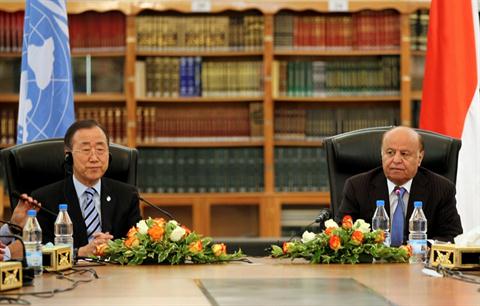CAIRO: The Advisory Council, recently formed by the Supreme Council of the Armed Forces, resumed Wednesday its regular meetings which were suspended in protest of the violence in downtown Cairo.
The council demanded that the military council respond to their demands by putting an end to clashes that started when military forces cracked down on a sit-in in front of the Cabinet.
The council announced that it had set four main demands, and that it would reconsider its duties should SCAF fail to respond to them.
"Members of the advisory council want to serve the country through their position and they are not paid for that. Therefore, if SCAF showed that it is not serious in taking our advice and wants to use us as a cover to pass unacceptable policies, then we will take a collective decision to withhold our activities," said Hassan Nafea, outspoken politics professor and member of the advisory council.
The demands as stated by Mohamed Nour Farahat, constitutional expert and the general secretary of the advisory council, are upholding the right to peaceful protest, putting an end to the violence against protesters, and ensuring that the protests do not lead to vandalism of public property and do not obstruct people’s interests, according to egynews.net.
The SCAF issued Wednesday statement No. 92 stressing that it supports the right to peacefully protest without vandalizing public or private property or obstructing people’s interests.
According to Sameh Ashour, head of the Lawyers’ Syndicate and deputy head of the advisory council, SCAF’s statement is a positive one that is in line with the demands of the advisory council.
A number of members of the council had resigned in protest of the military crackdown on the Cabinet sit-in.
"Individual actions don’t have an effect, while when the entire council decided to freeze its activities SCAF responded quickly," Nafea said.
"We need to take collective decisions because as long as we are pushing SCAF collectively it will respond and that’s why we are trying to convince those who resigned to reconsider their decision. We are also trying to add new members to the council," Nafea added.
The council, according to Ashour, discussed some suggestions to recruit new members to the council’s board. This is yet to be studied, he said.
Ashour said that during the meeting the council discussed the procedures of the selection of the constituent assembly that would draft the new constitution and the law of electing the new president.
"We also discussed the ability to set a new constitutional timetable for the current transitional phase," he added.
Meanwhile, SCAF said it had information of a conspiracy to destroy the country by escalating protests in Tahrir Square.
SCAF added that it publicized this information for honorable citizens to avert this plot.
"These developments require the revolutionary youth and those who organize demonstrations to take all necessary precautionary measures and to prevent any suspicious people from infiltrating them," the statement read, stressing that the security forces, either police or army, will not be present in the areas surrounding the protests.
On the same token, a high ranking official told the Middle East News Agency (MENA) that there is a conspiracy to start fires and cause chaos in the streets of Egypt on Jan. 25, 2012, the first anniversary of Egypt’s revolution.
Although the source did not identify the culprits, he said that there are contacts between local and foreign elements to start a new revolution by engaging the armed forces in bloody clashes with protesters after attacking vital facilities in the country.
"The only reason these statements were made is that SCAF will be the one to start those fires and clashes just to justify a crackdown on all revolutionary youth and activists," said Sally Toma, from the Revolution Youth Coalition, claiming that SCAF and its armed forces are the ones who burned the Scientific Complex for the same reason.
Nafea denied these allegations saying that the situation turned into an exchange of claims and accusations between SCAF and the youth.
"I believe there is a counter revolution that aims at widening the gap between the armed forces and the people," he said.
He stressed that SCAF cannot destroy public facilities or instigate violence so as not to tarnish its reputation or destroy the country.
Toma said that young activists decided to secure the public institutes themselves in response to SCAF’s claims.
According to MENA, the anonymous source stressed that the aim of this scheme is to impede the democratic process, bring down the army and destroy the state.
"Security authorities exposed the involvement of foreign parties seeking to infiltrate local elements to implement this scenario and that this is the first part of the plot," the source said, adding that the second part involves these foreign bodies interfering in Egypt and imposing international guardianship over the country.
Nafea called upon SCAF to expose those conspirators and arrest them if it has confirmed information.

